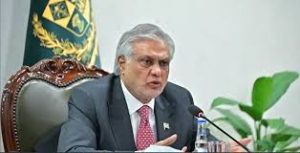Antivaccine voices topple Italy’s vaccine advisory panel

Rome: Italy is likely to remain without a NITAG for some time — potentially for the duration of the current government. The Italian Ministry of Health’s attempt to renew the composition of the independent vaccination advisory group, originally appointed in September 2021 and expired about a year ago, has failed. Italy’s Health Minister, Orazio Schillaci, was forced to dissolve the group just over a week after issuing the appointment decree, following a public outcry over at least two nominees whose antivaccine positions were deemed unacceptable by much of the medical and scientific community.
Calls for the minister to revoke his appointments came from diverse but united voices demanding a firm stance: from the Italian National Federation of Orders of Surgeons and Dentists to several scientific societies — including the Italian Society of Hygiene, Preventive Medicine, and Public Health; the Italian Society of Pediatrics; and the Italian Society of Neonatology — as well as associations such as the Italian Committee for the Investigation of Claims on Pseudoscience and the Transversal Pact for Science, which collected over 35,000 signatures. Numerous experts, science communicators, and journalists also spoke out personally, including myself.
Francesca Russo, head of interregional prevention coordination at the Health Commission of the Conference of Regions and Autonomous Provinces, declined the appointment following an assessment of the group’s composition, which includes members who, in the past, have repeatedly publicly expressed positions inconsistent with scientific evidence on vaccinations, in some cases promoting messages contrary to national vaccination strategies. Even The BMJ reported the news with concern.
The dispute also reflects tensions within Italy’s governing majority. Prime Minister Giorgia Meloni expressed irritation at Schillaci’s reversal, which was criticized by some members of Fratelli d’Italia (Brothers of Italy, Meloni’s right-wing party) and the Lega (a right-wing populist party), who had pushed for the inclusion of individuals with critical views on vaccines in the name of pluralism and freedom of debate. Forza Italia, a center-right party founded by former Prime Minister Silvio Berlusconi, praised the minister’s decision to backtrack and reaffirm his confidence — as a physician — in these essential preventive measures.
Some observers speculated, and others feared, that the minister might resign over the issue, opening a highly coveted post. Instead, in a last-minute move described as choosing the lesser evil, Schillaci dissolved the entire NITAG, a body recommended by the World Health Organization but which has never significantly influenced vaccination campaign decisions in Italy.
The episode dominated Italian news during Ferragosto, the national mid‑August holiday when much of the country is on vacation, for those following prevention, public health, and the delicate interface between science and politics.
Among the 22 technical experts selected to advise the ministry on vaccination policy were Paolo Bellavite, a retired professor of general pathology at the University of Padua, and Eugenio Serravalle, a Tuscan pediatrician specializing in homeopathy. Both are influential figures among Italians with vaccine concerns. For those studying vaccine hesitancy and antivaccine movements in Italy, the appointments initially seemed almost like a dark joke. But the decree was signed, and within hours the news was confirmed. Whether a political maneuver or an oversight, it raised serious questions, even though the minister has consistently affirmed his support for vaccines.
Bellavite and Serravalle do not identify as antivaccine — a label they find offensive — but their skeptical positions, expressed in books, public appearances, and social media, resonate strongly with those who refuse to vaccinate their children. What both frame as freedom of debate and opinion on vaccines often concludes with a categorical assessment against the risk-benefit profile of vaccines, even when scientific evidence strongly supports the opposite.
According to some tweets by Bellavite, the magic serum kills because it intoxicates and overstimulates the body’s reactions; inoculating children with 10 useless and harmful vaccines should be a crime; and it’s better to risk measles than the vaccine.
Serravalle is a founder of the Italian Coordination Movement for Vaccination Freedom and president of the Association for Health Studies and Information, two major Italian organizations around which dissent revolves. While these movements claim to oppose mandatory vaccination — an issue open to legitimate debate — they also buy advertising and disseminate online content questioning vaccine safety and utility.
Among Serravalle’s recent publications is a claim linking mRNA COVID-19 vaccines to increased childhood cancers — unsupported by Italian data. According to the 2024 report I Numeri del Cancro, by the Italian Association of Medical Oncology, data extend only through 2021, and projections do not indicate warning signs. Serravalle cited rising US cancer diagnoses after 2021, linking them to COVID-19 vaccination. If vaccines were truly the causal factor, a similar or stronger effect would be expected in Italy, where vaccination coverage has been more comprehensive than in many US regions. Therefore, other factors are probably responsible.
Concerns about mRNA products — also contradicted by data from millions of people — are shared by US Health and Human Services Secretary Robert F. Kennedy, Jr, known for promoting vaccine misinformation, including false links between measles vaccines and autism. Kennedy has even withdrawn government support for research into new infectious disease vaccines using mRNA technology, which Serravalle also believes should be regulated under gene therapy laws. The alignment between the two is reinforced by Serravalle having signed the introduction to the Italian edition of Kennedy’s book, Vax-Unvax: Let the Science Speak. Across 288 pages, the book omits the long-established scientific conclusion: Vaccinated children are much healthier than unvaccinated children.
For those familiar with vaccine safety, efficacy, and the consequences of preventable diseases, the answer is clear: Vaccination is essential. Yet, Bellavite and Serravalle continue to stoke parental doubts and fears. As someone who has at times expressed cautious or critical positions — particularly regarding mandatory vaccination during the pandemic — I want to be clear: Citizens can only make truly informed choices for themselves and their children if they have access to accurate information. Confusing them with fear and doubt undermines any notion of empowerment.
The turmoil unfolding in Rome this August is not just about ideologic clashes or political maneuvering for positions, votes, or influence. It reflects a broader, persistent challenge in Italy: the complex relationship between science and politics. As often happens in any system, cooperation becomes difficult when roles and responsibilities are unclear.
This tension was evident during the COVID‑19 pandemic. Politicians demanded certainty from scientists and grew frustrated when epidemiologic models produced unexpected results. Meanwhile, technical experts were accused of ignoring political realities, and politicians were criticized for deferring decisions to scientists.
In areas requiring technical or scientific judgment, truly independent advisory committees are essential to provide evidence that political authorities can responsibly act upon. Achieving this, however, requires reform in how such bodies are appointed — currently, political authorities control the selection — and a reconsideration of their mandate.
Many opponents of the previous NITAG, as well as Schillaci in his dissolution statement, have advocated for a committee that represents all relevant stakeholders. The Italian Ministry of Health emphasized the importance of initiating a new appointment procedure for NITAG members to involve all relevant categories and stakeholders.
Yet, this approach runs counter to NITAG’s original purpose: to provide independent scientific expertise to inform policy, free from competing interests. Because the primary focus — protecting public health — is often overshadowed by stakeholder conflicts, achieving a concrete, evidence-based solution is likely to remain difficult.





